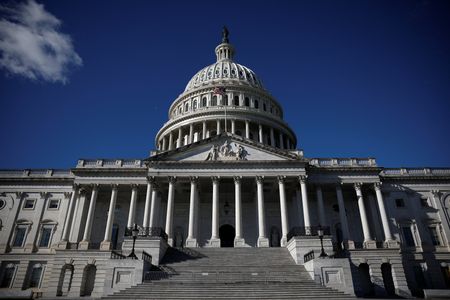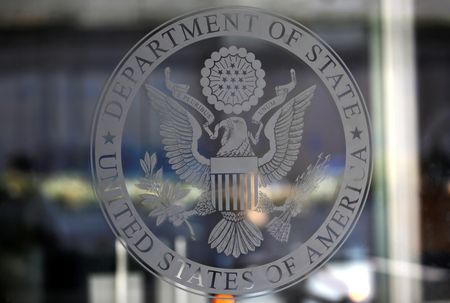By Patricia Zengerle and Bo Erickson
WASHINGTON (Reuters) -The Republican-led U.S. Senate is due to vote next week on President Donald Trump’s request to slash $9.4 billion in spending on foreign aid and public broadcasting, setting up a showdown with Democrats that could complicate annual budget talks.
Senator John Thune of South Dakota, the chamber’s Republican majority leader, told reporters the Senate could take up the bill as soon as Tuesday.
“I’m not sure that I have an exact time and day and all that. But it’ll have to be fairly early in the week. I would suspect probably on Tuesday,” Thune said on Thursday.
The Senate has until July 18 to act on the rescissions package – a request to claw back funding previously approved by Congress – or it will expire and the White House will be required to adhere to the spending plans passed by Congress.
Standalone presidential rescissions packages have not passed in years, because previous Congresses have not wanted to give up their constitutionally mandated control of government spending.
For example, lawmakers rejected Trump’s request to revoke $15 billion in spending in 2018, during his first term.
In the current Congress, Trump’s Republicans hold narrow majorities in both the Senate and House, and have shown little appetite for opposing his policy initiatives.
Congress last week passed Trump’s massive “Big Beautiful Bill,” a massive package that would fund Trump’s domestic agenda, cut some taxes and could push millions of Americans off health insurance.
The rescissions legislation passed the House by 214-212 last month, as four Republicans joined 208 Democrats in voting against the bill.
The measure faces a sterner test in the Senate, where some Republicans have expressed concern about Trump’s plans to slash programs to fight AIDS, support women and children’s health globally and fund U.S.
rural broadcasters.
Senators are expected to offer amendments to the legislation to address those concerns.
The Senate’s Democratic leader, Chuck Schumer, sent a letter to members of his party on Tuesday warning that the foreign aid and broadcasting cuts could make it more difficult to negotiate the package of spending bills that must pass by September 30 to fund the government next year and avoid a shutdown.
“Republicans’ passage of this purely partisan proposal would be an affront to the bipartisan appropriations process,” the New York senator wrote.
Appropriations bills require 60 votes to move ahead in the Senate, but the rescissions package needs just 51, meaning Republicans can pass it without Democratic support.
(Reporting by Patricia Zengerle and Bo Erickson; additional reporting by David Morgan; editing by Cynthia Osterman)











